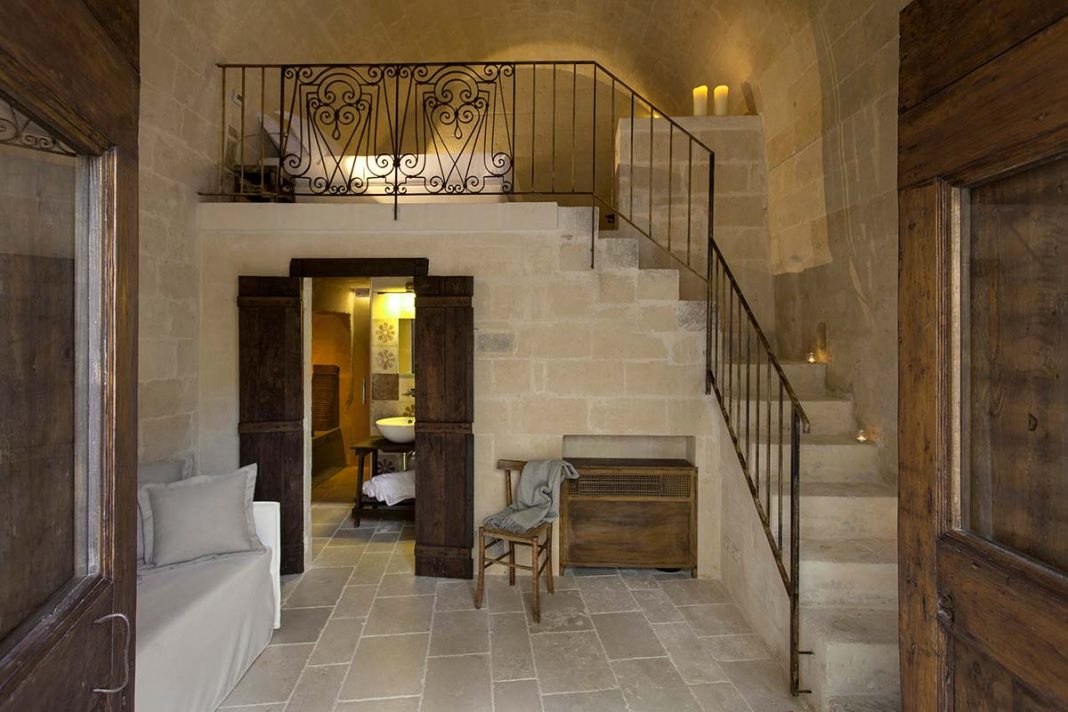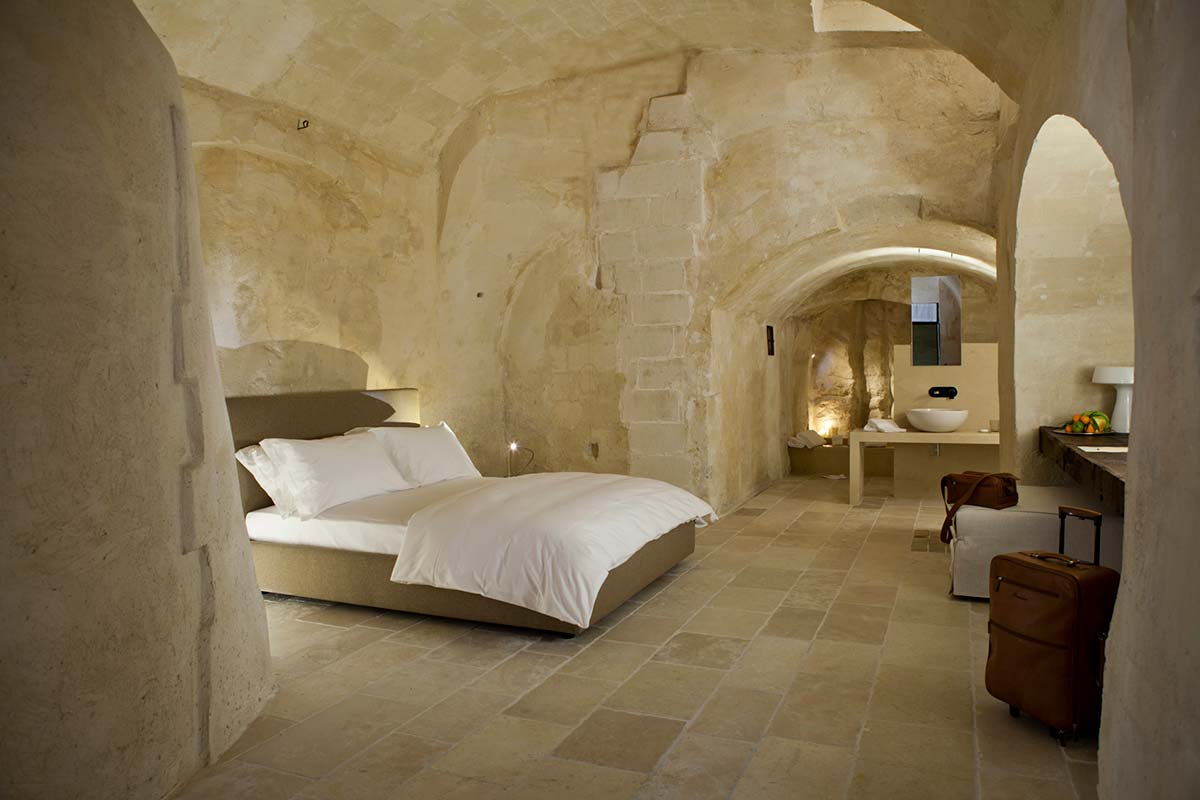
The idea is to go back in time, not just in architectural terms, eliminating the superfluous, the contaminations, the layers of added floors, exposing the original masonry in volcanic stone and the vaults, seeking authenticity and essence. Fernando and Marisa Ponte, helped by the Matera-based architect Daniela Amoroso, have restored these primitive structures in the Rioni Sassi zone of Matera, one of the oldest cities in the world (the third after Aleppo and Jericho).
The inspiration for the whole project is the Wabi spirit, redefined by Axel Vervoordt (collector and interior designer) with the Japanese architect Tatsuro Miki. This thinking is based on pursuit of simplicity, humility and respect for the action of time on things, rejecting the superfluous and assigning value to imperfection.
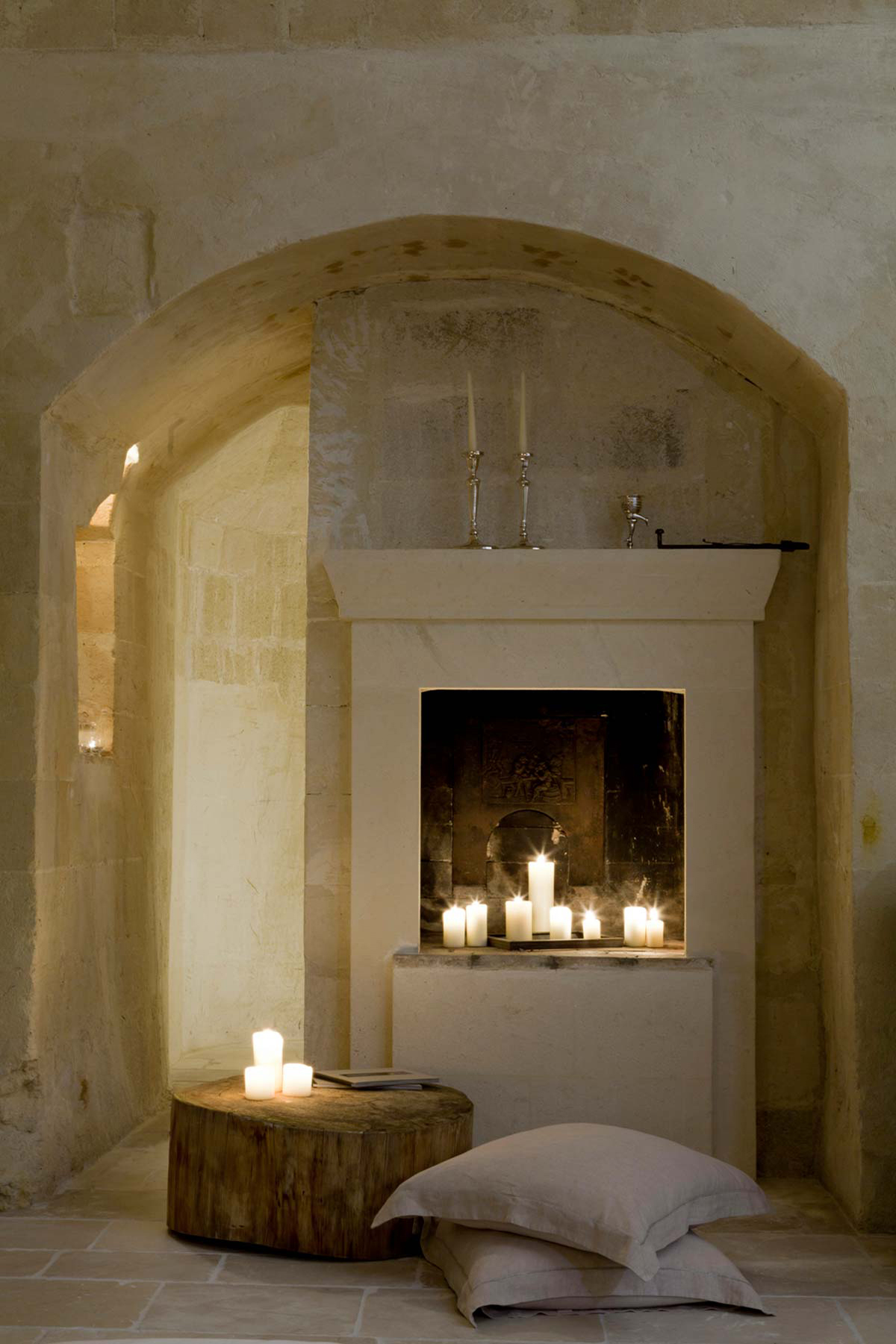
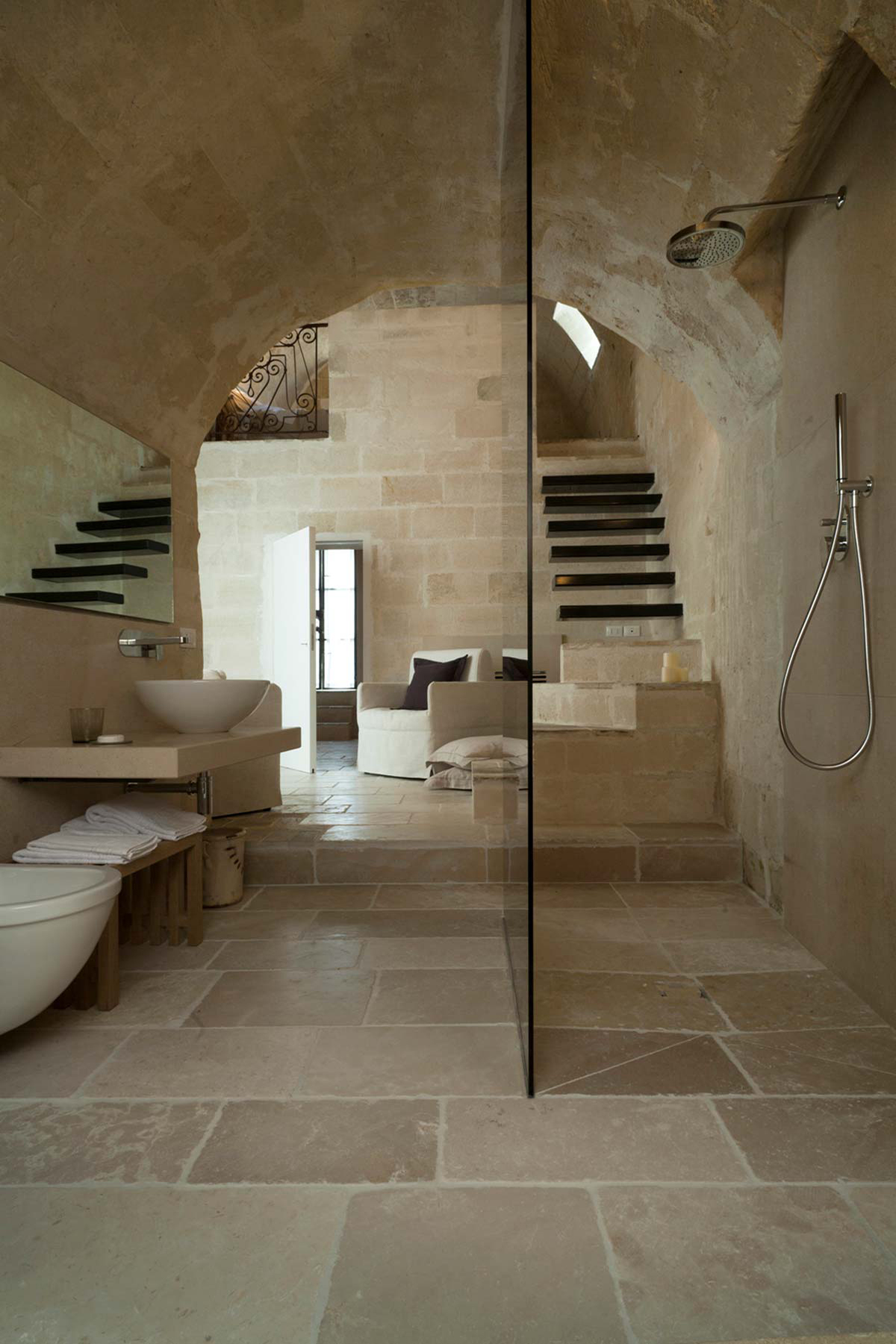
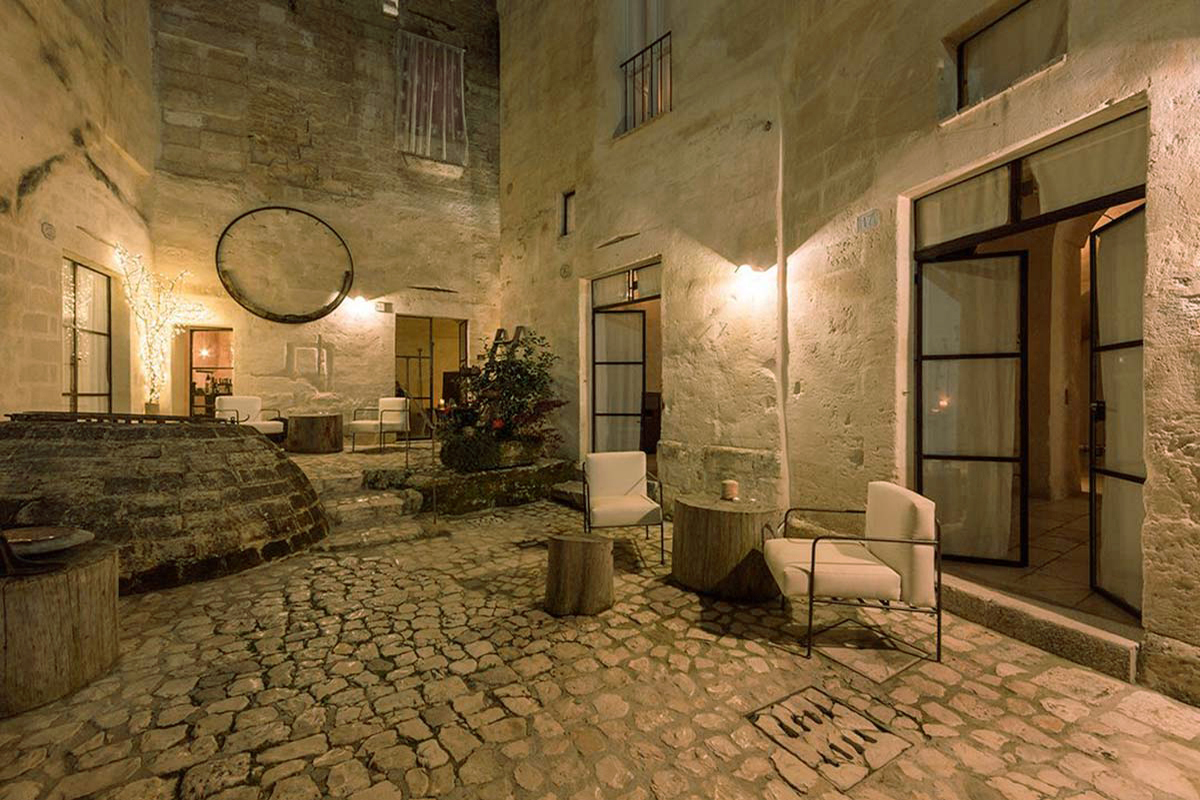
As in all distributed hotels, Corte San Pietro extends horizontally with rooms, a reception area, a breakfast room, set on different levels. The rooms face a courtyard where the original pavement in limestone, known as ‘chiancarelle,’ has been restored. From Via B. Buozzi you reach the reception created in one of the private houses. Then, crossing the court, you arrive at the rooms (each at a different address number, from the Suite Loft at number 20 to the Grand Suite at 16, and so on).
First you enter a living and relaxation area, and then further in you find the more private spaces excavated in the rock, with bedrooms. Passing through tuff stone arches, guests access bathrooms with niches and cavities, featuring large tubs and showers in stone. The furnishings have been reduced to an indispensable minimum, relying on antiques or salvaged objects, such as the chestnut benches that become doors, shelves or tables, the frames of old chairs that become towel racks, or the seats and bedside units carved from tree trunks. All the rooms have a monochrome palette in chestnut tones, from the beige of the stone to the brown of the wood and Cor-ten.
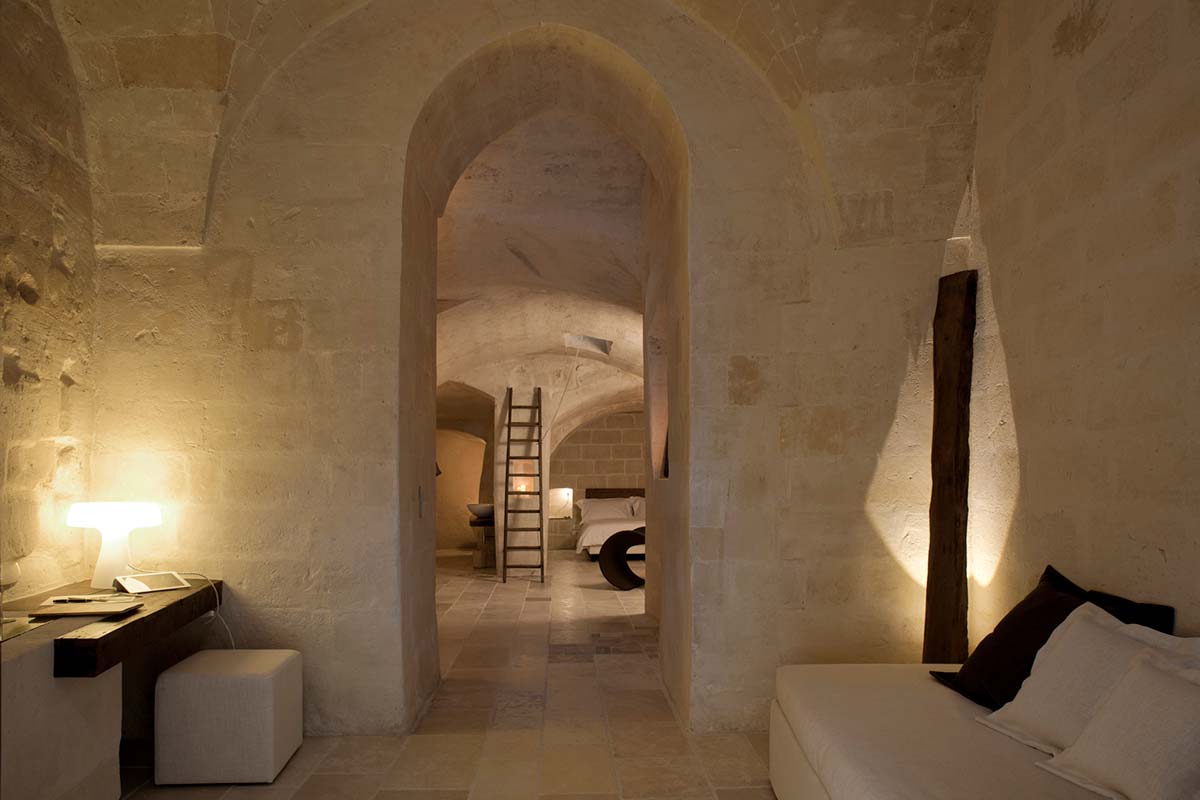
The lighting adds to the effect, with intense brightness entering through the entrance doors, crafted by hand, and then just small windows for the bedrooms, where beams of light alternate with shady zones. The eight cisterns located below the hotel (remains of an ancient water supply system) will soon be ready for visitors, transformed into a spa, a pathway of inner wellbeing to enjoy the ancestral spirit of Matera.

